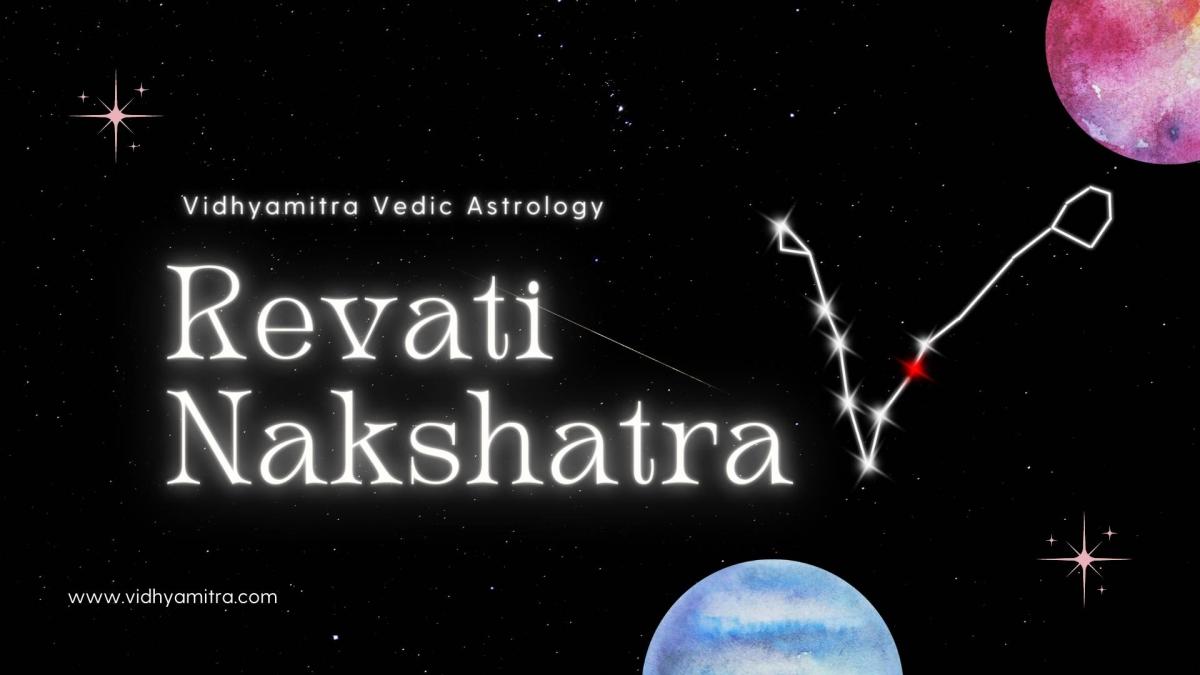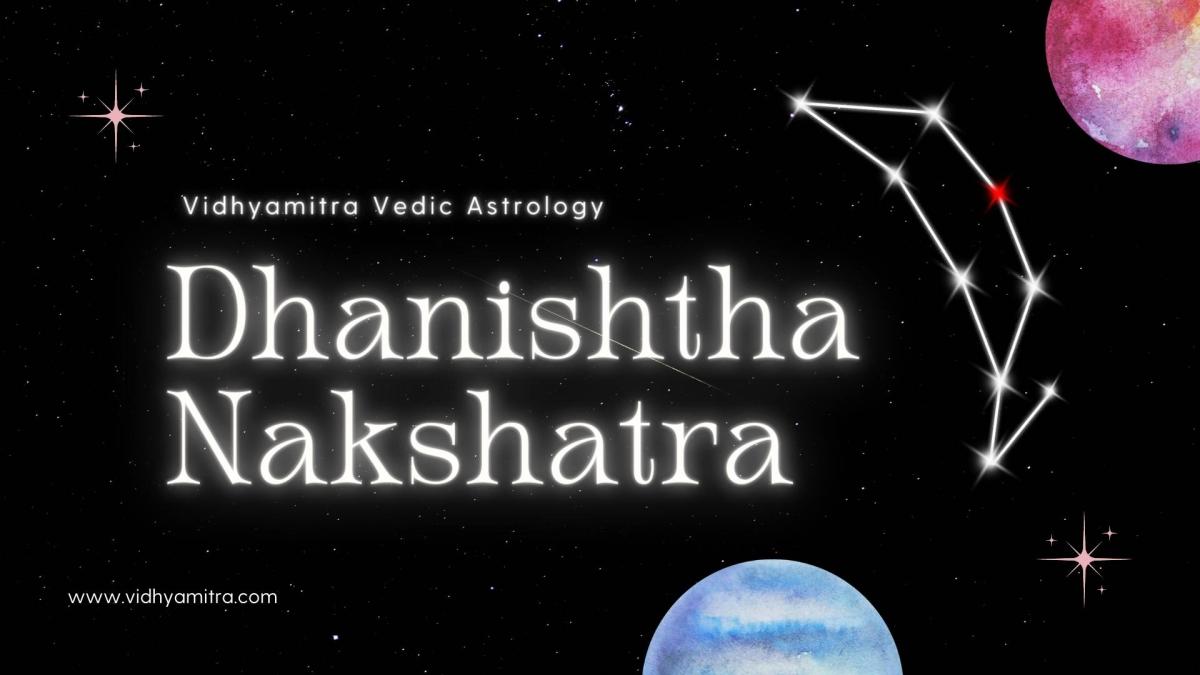
Natives born in Revati Nakshatra in #Astrology are sensitive, compassionate, caring, giving, selfless in nature, lover of small pets, independent, unaffected by pressure, calm and centred, soft-spoken, extremely deep and spiritual, dreamy, imaginative, intuitive, believing in the inner voice and reflective in nature, understanding the larger scope, detached from the earthly plane, possess a great spiritual understanding and are well educated.
#Revati #nakshatra in astrology is one of Tiryaka Mukhi #Nakshatras (or the Nakshatras with their mouths curved). In these Nakshatras, things related to roads, dams, the expansion of metals, chariots, boats, etc., can be auspiciously begun and performed.
Symbol: A Mrudhangam (Indian Drums)
The symbol for Revati is #Mrudhangam or #drum. This indicates that the babies can recognize your voice because they know it since they are in the womb.
Deity: The #Pushan
Pushan is the deity of Revati Nakshatra. Pushan is one of the Aadhithya. He is a God of meetings. He is responsible for marriages, journeys, paths, and cattle feeding.
He conducts souls to other worlds or from another world to this world. He protected travellers from bandits and wild beasts. He also protected men from being exploited by other men. He is a protector of livestock. Goats pull his chariot.
The yoni animal of Revati Nakshatra is a #female #elephant.
Like Bharani Nakshatra, these people are also all about protecting and guarding.
A female elephant is the most dangerous next to a female bear.
They will stomp in the ground until there is nothing left of you if you even come ¼ of a mile close to their calf.
Never mess with a Bharani or a Revati mother. Elephants are big, bulky, huge, and when elephants run or stampede, the ground shakes.
Elephants have an excellent memory.
They will never forget what right or wrong you did to them.
They could take revenge on you or hug you 30 years later if you met them by chance.
Elephants are family animals and have partners, children, grandparents, aunts, uncles etc.
When one dies, they all come to the burial ground because elephants actually know to dig the ground to bury their dead family and relatives on rare occasions.
The elephant is an animal with a human heart.
They can consume 50 gallons of water and 200- 600 pounds of food per day. Elephants are slow walkers, walking on toes and are very protective of their young ones, as well as to everyone they know.
Elephants are known for their beautiful tusks, but it also costs them their lives for which they are killed.
Purva Ashada, Uttara Ashada, and Revati people will always have issues with their teeth, especially Revati natives.
Revati natives are extremely protective of their families and children. They lash out at everyone trying to come after them.
They usually take time to do their work, and they do not like to be disturbed or irritated.
If you do anything wrong with Revati/Bharani natives, they will remind you of what you did to them even after 30 years; they can be your best friend and close family member at times but will hint that they still remember what you did to them years back.
Elephants have tusks, which are their teeth. Revati natives will have long teeth and usually some issues with the teeth, which is karma due to what has been happening with elephants in nature for thousands of years as people are hurting them for their tusks.
This translates into Revati people even having a botched job with a dentist at one point in life where they would undergo several procedures to get their teeth corrected.
The symbolism of this Nakshatra is the drum and two fishes, which is also related to the Pisces sign.
The drum symbol is because this Nakshatra’s deity is Pushan, the Lord of wild animals, and Shiva himself is the Lord of wild animals.
Revati is connected with the sound of Shiva in terms of music, which is the Damru.
Revati natives are involved in music, dance or poetry, but there is one thing about Damru, the drum, which was used when major news announcements were made in a village or the arrival of an important individual.
Revati natives will always sound the alarm for cruelty against animals in social media, mainstream media, or personal groups.
They are extremely against any harm done to animals, like Radagast The Brown in Lord of the Rings, who was connected with nature and wildlife.
If one only reads what the Lord of the Rings book had to offer on one of 5 wizards, it can be seen that there is a lot of similarities between him and Revati natives.
The fish represents the duality and confusion within the Revati native.
One side wants to pace towards its goal, while the other wants to learn and remain in the past.
People with planets in this Nakshatra remain confused in life about what aim to take, which path to walk on, what decisions to make.
They do not feel at ease until they connect with nature or fight for nature.
Most spiritualists would have this Nakshatra because spirituality and its awakening is the higher dimension, away from our ordinary world.
Fish is also the oldest creature known to man. They have been here for over 500 million years, which also shows the depth and age of the Revati soul.
When the soul has been through countless cycles of this world, its only interest and path are to find the true nature and its spirit.
The deity of the Revati Nakshatra is Pushan, one of the 12 Adityas and is the protector of flocks, herds, and safe travels.
The Adityas are the guardians of universal laws and codes of conduct.
He also has a special affinity for animals. Pushan is also considered the ruler of the roads. He is the Lord of lost things and lost animals.
The search of any lost items on a Revati Nakshatra day can prove to be successful.
Lord Pushan is also the final ferryman, who ushers the souls into the realm of Yama into the netherworld.
He is also the protector of wayfarers and their belongings, as well as the God of meetings.
In Daksha’s yagna, Pushan was eating the oblation when Rudra arrived.
Rudra is supposed to have knocked Pushan’s teeth, and so the offerings to Pushan are made of soft porridge-like mingled soft curd rice.
As mentioned above, he is the ferryman and protects travellers in their journey.
This theme of Revati Nakshatra indicates that the natives are well versed in direction and can easily follow maps and reach their destination, and will be experts in navigation.
Leading others, showing the way to others physically, mentally or through counselling can be a theme for Revati natives.
Pushan and Ashwin Kumaras are known for their ability to heal animals.
The energy of Pushan is invoked during the Ashwamedha yagna (horse sacrifice ritual) to protect the horse from falling and injuring his leg and becoming lame, which indicates that the healer for lameness is Pushan.
It must be noted that the 12th house in astrology or the birth chart is where Revati Nakshatra dwells, and the 12th house denotes the feet of the native.
Pushan is the shepherd and veterinarian among the Gods.
As a result, Revati natives have a special affinity and fondness for animals and pets.
Revati natives can take special interest in zoologists, marine biologists, animal conservationists, etc.
Pushan’s mode of transportation is unique, with a goat drawn chariot useful in travelling hilly terrains and dangerous roads.
The animal goat is very adept in climbing hilly terrain and places difficult to access, which shows Revati natives may love exploring places, have an interest in visiting foreign nations and travelling or dwelling near mountains.
The story of the shepherd also connects Revati closely with #Krishna or #Christ.
The natives will be extremely fond and close to one of these figures because both were shepherds and protected animals, which is why they also make great safety officers in corporations.
Princess Revati is supposed to have been the wife of Lord Balaram.
The princess and her father approached Brahma and saw that he was sleeping.
Finally, after waking up, Brahma enquired as to why they were there.
Her father said he wanted to find a suitable bridegroom for his daughter.
Brahma mentioned that by waiting for him in Brahma Loka, where time moves at a slower rate than the Earth plane, the corresponding time in Earth had changed yugas, and their kingdoms have vanished with men being shorter than what they were before.
Brahma said that the only man suitable in this new yuga was Balaram, the elder brother of Lord Krishna.
Balaram used his plough to make Revati’s height shorter which indicates the partner of Revati natives will be shorter in height.
This Nakshatra can also provide an extremely tall partner.
It also shows that a Revati native will procrastinate on choosing their partner and miss out on the perfect match.
This is the confusion of the two fishes they run into.
Time goes much slower for Revati, and they will always take their time when doing any task or making any decision.
Such people are not good at working in a place where quick decision-making is required.
Attributes of Revati Nakshatra in Astrology
Spread from 16’40” up to 30’00” degree in Pisces (Meena) Rashi.
Lord is Jupiter (Guru). Pushan is the keeper of cows of the Gods; this leads to keeping cows and animal husbandry, protection and nourishing of dependants, foster-father, etc.
Pusha means cherishing protected people, nourishment, excellence, material enjoyment, wealth, prosperity, extravagance, and being fat.
The native of this star advances by leaps and bounds.
This is the #birth star of #Shani.
Anthropomorphically, this is the cavity of the abdomen, groins of Kalapurusha.
Description of Revati Nakshatra in Vedic Astrology Treatise
According to Hora Sara: The native of Revati Nakshatra will enjoy a full span of life, be fortunate, be at the disposal of women, will have self-respect and pride, will be full of spirit, very courageous and spiteful.
According to Jataka Parijata: If a native is born in Revati Nakshatra, he will have a broad mark, will be love-sick, lovely, clever in counsel, will have sons, family, and friends, and will enjoy steady and continuous prosperity.
According to Sage Narada: The native born in Revati Nakshatra will be charming, wealthy, will enjoy pleasures, be scholarly, very proud, heroic, and will live in foreign lands.
According to Brihat Samhita: The star Revati makes one have a symmetrical body (a perfect body), and the native will be attractive, heroic, pure, and wealthy.
https://vidhyamitra.com/revati-nakshatra-in-astrology-characteristics-padas-remedies/


